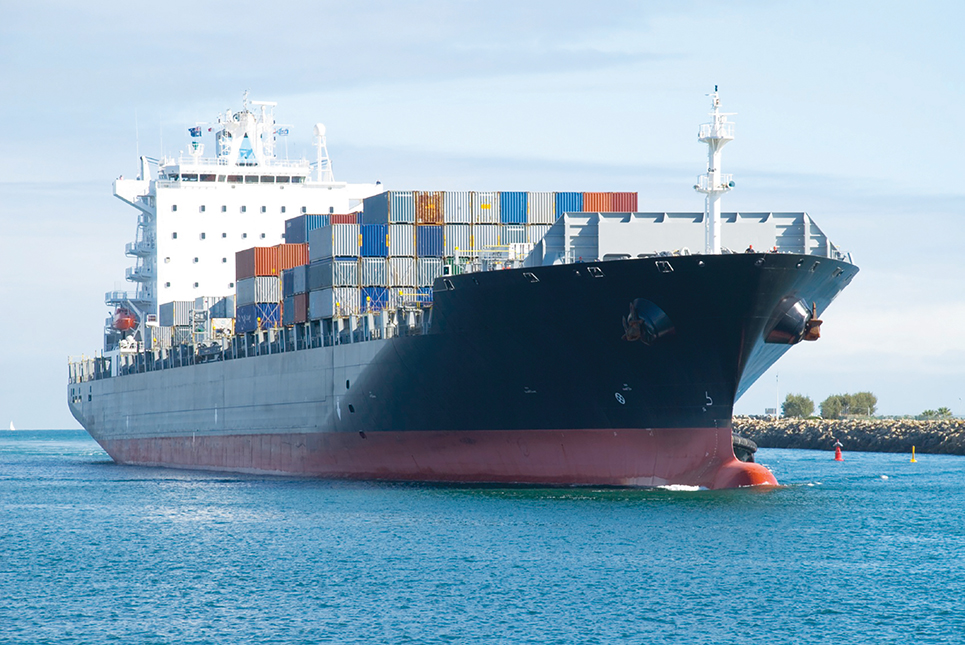
A lot has been said recently about the fertile exporting environment for UK businesses.
The low value of sterling has made our goods and services more attractive to overseas buyers and our impending departure from the EU is prompting British businesses to look beyond Europe for new trading partners.
Recent Government statistics are proving that we’re making the most of growing international demand, too.
The Office for National Statistics’ first set of full year figures on Britain’s trade since the Brexit vote reported the value of our exports rose 11.3% to £617bn in 2017.
In particular, exports to non-EU countries increased by 11.6%, which tells us that businesses aren’t afraid of exploring markets further afield.
Our own research at Lloyds Bank has also found that the new year had been good for exporters. A quarter (25%) of exporters we spoke to in our March Business in Britain report said their total exports had gone up over the previous six months. A similar number (24%) expected their total exports to increase over the first six months of 2018 too.
Despite these positive figures, a worrying one in four (25%) exporters still haven’t reviewed their trading strategy since we voted to leave the EU. Of those that have, more than half (53%) have decided to focus more on UK opportunities.
While there are benefits to focusing on domestic opportunities, these businesses are limiting their potential growth. They are also relying on the performance of the British economy – if it’s doing well and confidence among consumers is high, demand for business’ goods and services will be there. If the economy takes a downturn, however, businesses will have little other trade to soften the blow.
Why are these firms not expanding their international footprint?
We carried out a separate survey of more than 2,000 exporters with YouGov last year. It found that, of those firms that said they had exported in the past but not in the previous 12 months, more than a quarter (28%) said the reason for their increased domestic focus was because they had been unable to find further export opportunities.
Have the most up-to-date information to hand
We developed our International Trade Portal to tackle this problem and to help firms identify target markets. The portal helps firms prioritise the best overseas opportunities, and provides specific advice on how to avoid the potential pitfalls that come with trading with new countries. Find out more at lloydsbanktrade.com
The ability to access support and advice from partners such as the Department for International Trade’s GREAT.gov.uk can also play a key part in a firm’s international trade success.
Exporting will always present its challenges but firms should know that help is on hand. To make sure British businesses continue prosper once we leave the EU, we need to be making the most of international demand. Focusing on the following four pillars will help to mitigate potential risks and challenges:
Unlock working capital – companies that have strong working capital positions will be better able to weather whatever challenges the future might bring. There are many ways to unlock working capital, including via payment terms renegotiation, stronger credit control, and bank financing. A focused investigation into bottlenecks and solutions can often yield material improvements. Lloyds Bank’s recent update to the Working Capital Index shows that across UK firms there is at least £680bn of cash that is currently tied up in excess working capital.
Focus on productivity – Britain lags behind other developed economies such as the US, Korea, Canada and Germany in terms of productivity. If tariffs do start to erode profits, increased productivity will ultimately lead to a lower cost base, helping companies manage the tariff impact and continue to provide competitive pricing. With access to labour a real concern, especially in the service and construction industries, companies should consider how they can drive productivity via automation/new production technologies.
Trade with the world, not just the EU – regardless of how the EU negotiations play out, companies should be looking to take advantage of sterling’s depreciation by identifying new markets for their products and services. This will help minimise the impact of any future loss of access to Free Trade Agreements or possible slowdown of growth. New markets deliver new ways of doing business and so, as previously noted, companies should ensure that risk management and working capital is front of mind. Companies also quickly need to consider the implications of any extra tariffs and customs requirements on their inward supply chain – is it time to switch some key suppliers?
Be risk aware – a financial loss can have a huge impact on cash flow. Greater macroeconomic uncertainty could lead to greater client payment delays or failures, and new markets means new risks and ways of doing business. It is therefore important that firms have a resilient risk management strategy in place, especially when starting to look at markets outside of the EU. Companies should be considering the full range of risk mitigation techniques, from letters of credit and guarantees, through to credit insurance and UK Export Finance offerings.
Clive Higglesden is Head of trade and supply chain product at Lloyds Banking Group.





